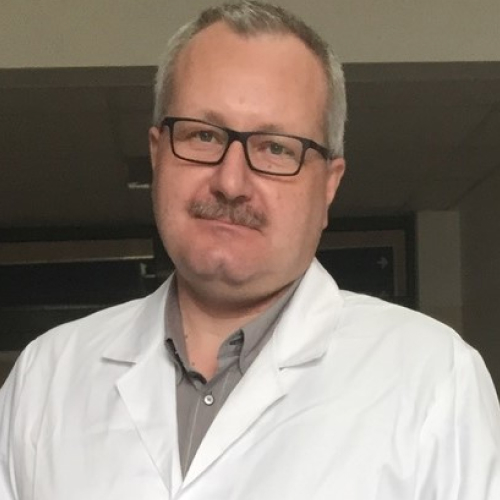Hyperthyroidism: symptoms, causes, treatment [Doctor's Advice].
Find out what research, experts and patients say about hyperthyroidism!


Learn more about our editorial process
.

Learn more about our editorial process
.

Learn more about our editorial process
.

Learn more about our editorial process
.![Hyperthyroidism: symptoms, causes, treatment [Doctor's Advice].](https://cdn-resources.natu.care/uploads/1/kobieta_trzymajaca_sie_za_szyje_majaca_nadczynnosc_tarczycy_faf8ff746e.jpg)
Why you can trust us
Articles on Natu.Care are written based on scientific research, data from government websites and other reliable sources. The texts are written in cooperation with doctors, nutritionists and other health and beauty experts. Articles are reviewed before publication and during significant updates.
.Learn more about our editorial process
.Information about advertisements
Content on Natu.Care may contain links to products from the sale of which we may receive a commission. When creating content, we adhere to high editorial standards and take care to be objective about the products discussed. The presence of affiliate links is not dictated by our partners, and we select the products we review ourselves completely independently.
.Learn more about our terms and Conditions
.Respiratory energy, faster metabolism or unexpected weight loss - most people would say these are benefits alone. However, their cause can be dangerous.
In Poland alone, around 2% of adults suffer from it. You may initially miss some of the symptoms because you will experience things that you normally associate positively. It is only with more severe symptoms that you will turn for help.
There are some symptoms that you may miss.
Luckily, hyperactivity can be cured. That is why, together with Witold Tomaszewski, MD, PhD, and Julia Skrajda, clinical nutritionist, we suggest which symptoms to look out for, how to treat hyperthyroidism and what to do to be able to live with it normally.
There is no better way to cure hyperthyroidism.
From this article you will learn:
.- What symptoms of hyperthyroidism to look out for.
- What to look out for.
- Who is at increased risk of hyperthyroidism.
- Who is at increased risk of hyperthyroidism.
- How does hyperthyroidism affect fertility and pregnancy.
- How does hyperthyroidism affect fertility and pregnancy?
- What are the treatment options for hyperthyroidism.
- How does hyperthyroidism affect fertility and pregnancy?
- Whether hyperthyroidism can be completely cured.
- What about alcohol and pregnancy?
- What the scientific research says about alcohol and hyperthyroidism.
- What the research says about alcohol and hyperthyroidism.

Sprawdź, za co pokochały go tysiące klientek Natu.Care Premium Omega-3ᵀᴳ -15% z kodem BLOG15
Natu.Care Omega-3ᵀᴳ Premium
Natu.Care Omega-3ᵀᴳ Premium dla zdrowia serca, mózgu i odporności. Najlepsza przyswajalność. Optymalna dawka 750 mg. Przebadana przez niezależne laboratorium.
Zobacz więcej
Produkt ma super skład, transparentną etykietę i co dla mnie jest ważne – małe kapsułki do połknięcia. Nie ma też nieprzyjemnego efektu odbijania rybą, który miałam spożywając inne produkty. Widzę znaczną poprawę odporności. Polecam!@Kasia P.
Do you notice the symptoms described in the article in yourself? Perform thyroid tests and consult an endocrinologist. Early diagnosis means a better chance of effective treatment!
See also:
- Thyroid - functions, tests, diseases and treatment .
- Psoriasis - how to recognise it .
- Thyroid testing
- Cortisol testing
- Liver tests
- Blood tests
What is the thyroid gland responsible for in our body?
.The thyroid gland is a butterfly-shaped gland that is located at the base of the neck. It is an important part of the endocrine system. Despite its small size, it controls and influences many processes that take place in our body. This happens through the production and release of the thyroid hormones T3 (triiodothyronine) and T4 (thyroxine).
Thyroid function, or thyroid function, is regulated by thyrotropic hormone (TSH) produced by the pituitary gland.
The thyroid gland affects a number of key functions for your body, including:
- .
- metabolism and energy utilisation, .
- respiration, .
- digestion, .
- thermogenesis (generation of heat in the body), .
- brain development and mental activity, .
- skin and bone health, .
- fertility, .
What is hyperthyroidism?
.Hyperthyroidism is said to occur when the gland produces more thyroid hormones than the body actually needs.
An excessively high concentration of T3 and T4 causes the pituitary gland, which regulates the thyroid gland, to gradually enter a kind of dormant state. As a result, it reduces or completely stops the release of thyrotropic hormone (TSH), which stimulates the thyroid gland to produce T3 and T4.
The thyroid gland is not able to produce T3 and T4.
Therefore, hyperthyroidism (hyperthyroidism) occurs when TSH levels are low and thyroid hormone readings (FT3 and FT4) are above accepted norms.
The term 'hyperthyroidism' describes a disease syndrome associated with excessive production of thyroid hormones. Unfortunately, there is a mistaken belief that hyperthyroidism and thyrotoxicosis are synonymous. Thyrotoxicosis is a condition in which tissues are overexposed to thyroid hormones. Yes, hyperthyroidism can lead to thyrotoxicosis, but they are separate clinical entities.
See also:
Hypothyroidism - test results and TSH standards
.One basic thyroid test result will not diagnose any condition, but prompts further tests to assess thyroid disorders.
Hypothyroidism.
Test results suggestive of hyperthyroidism are comorbid:
- low TSH levels, .
- too high concentrations of FT3 and/or FT4. .
The accepted norms for TSH and thyroid hormones are:
respectively.- TSH: 0.45-4.5 µU/ml .
- FT3: 4.0-7.8 pmol/l .
- FT4: 10-25 pmol/l .
Remember that thyroid hormone concentrations depend on lifestyle and age. Fluctuations can be caused by diet, menstruation, pregnancy or medication. The limits of normal for TSH "increase" with age. A concentration of 3.7 µU/ml may be as optimal for a 34-year-old businesswoman as 6.9 µU/ml for a 75-year-old retiree.
The reference values for thyroid tests will vary from laboratory to laboratory, so results should be interpreted according to locally accepted ranges..
 .
.
Witold Tomaszewskidoctor of medical sciences
.Primary and secondary hyperthyroidism
.Hyperthyroidism can occur in primary or secondary formand.
Primary hyperthyroidism is associated with a dysfunction of the gland itself, which produces too much hormone while at the same time the TSH level is reduced.
Recurrent hyperthyroidism is caused by inappropriate secretion of TSH, leading to increased production of FT3 and FT4.
In a nutshell: primary hyperthyroidism refers to disorders of the thyroid gland itself, and secondary hyperthyroidism refers to problems with the pituitary gland, which is responsible for TSH production.
Subclinical hyperthyroidism
.As with hypothyroidism, hyperthyroidism also has its dormant, subclinical form. It is found when TSH levels are low and FT3 and FT4 are normal. It is experienced by approximately 2% of peopleand, although the percentage may be higher in areas with iodine deficiencies, such as in the daily diet.
Pharmacological hyperthyroidism
.Hyperthyroidism can be triggered by the use of certain drugs. Drug-induced hyperthyroidism will produce different symptoms - depending on which pharmaceutical was taken. The medications that most commonly cause temporary hyperthyroidism areand:
- amiodarone, .
- iodine-containing contrast agents, .
- lithium and its derivatives, .
- interferon-alpha, .
- some anticancer drugs, .
Hypothyroidism and Graves' disease
.Graves-Basedow disease is an autoimmune disease that is one of the most common causes of and the onset of hyperthyroidism. The immune system and antibodies attack the thyroid gland, leading to an overproduction of hormones.
Graves-Basedow disease is more common in women than men. A 2011 study shows that who develops the disease is primarily influenced by genetics, although environmental factors are also not insignificant.
Who is affected?
Natu.Care Collagen Premium 5000 mg, mango & passion fruit

- Collagen content: 5000 mg marine collagen hydrolysate
- Additional active ingredients: vitamin C, low molecular weight hyaluronic acid (and L-theanine and coenzyme Q10 in cocoa flavoured collagen or vitamin A and vitamin E in mango–passion fruit flavoured collagen)
- Form: powder sachets
- Dose: 1 sachet per day
- Sufficient for: 30 days
Product description
Fish collagen from the Natu.Care brand in a dose of 5000 mg, based on certified ingredients of the best quality. Regular supplementation will positively influence the appearance of the skinóry, hairów and nails – they will be rebuilt and strengthened from the inside.
In addition to collagen, which is valuable for health and beauty, it also offers other active ingredients that help to maintain a youthful complexion, shiny hair and strong nails.
The formula contains a sufficient portion of the active ingredient to positively affect joints, the musculoskeletal system and immunity.
Natu.Care Premium Collagen is available in two flavours – Cacao Bloom and Rise&Shine. Both formulas are based on the following active ingredients: marine collagen hydrolysate, wild roseóbud extract and hyaluronic acid.
Additionally, Cacao Bloom contains natural L-theanine, coenzyme Q10 and defatted Dutch cacao. Rise&Shine instead contains vitamin E and vitamin A.
These are the best collagens in the world.
These best fish collagens on the market also rós taste – Cacao Bloom is a treat for chocolate lovers. Rise&Shine will appeal to those whoólike the refreshing taste of mangoófruit and passion fruit.
Pros and cons
Pros:
- Vitamin C supports the body's collagen production, enhancing its effectiveness.
- An effective dose of hyaluronic acid, which additionally supports skin hydration and joint health.
- Fish collagen absorbs 50% better. Additionally, the manufacturer specifies the fish species it is sourced from (Atlantic cod).
- The composition has been tested by the independent and accredited J.S. Hamilton laboratory.
- MSC (Marine Stewardship Council) quality certification, which confirms that the collagen source supports sustainable fishing practices.
Cons:
- None.
Additional information
Natu.Care's fish collagen receives praise for its delicious taste. You won't find the fishy aftertaste that often comes through in other collagens. Plus, you have two tasty flavors to choose from: cocoa and mango-passionfruit.
Active ingredients like coenzyme Q10, hyaluronic acid, and natural L-theanine provide anti-inflammatory and antioxidant benefits while slowing down aging processes.
User review
Super, after about 6 weeks of use, the skin on my face became noticeably firmer. Wonderful taste.
Ania ZalewskaNatu.Care customer
Natu.Care Premium collagen 10 000 mg, mango-maracuja

- Collagen content: 10,000 mg marine collagen hydrolysate
- Additional active ingredients: vitamin C, low molecular weight hyaluronic acid (and L-theanine and coenzyme Q10 in cocoa flavoured collagen or vitamin A and vitamin E in mango–passion fruit flavoured collagen)
- Form: powder sachets
- Dose: 1 sachet per day
- Sufficient for: 30 days
Product description
One of the strongest collagens on the market, whichós provides as much as 10,000 mg in a daily serving. This allows the formula to effectively support the condition of the skin, hair and nails.
With this supplement, you will support your beauty, which will allow you to visually stop the ageing process and feel a second youth!
Natu.Care Collagen Premium 10 000 mg comes in two flavours – cherry and mango-maracuja. Both formulas have the same product backbone – collagen, hyaluronic acid and vitamin C.
In the cherry version you additionally find glucosamine, chondroitin and Indian frankincense resin extract. Mango-maracuja, on the other hand, contains vitamin E and vitamin A.
Pros and cons
Pros:
- Tested collagen formula – SeaGarden, whose effects have been confirmed in clinical studies.
- Effective dose of hyaluronic acid, additionally moisturizing the skin and positively impacting joint health.
- Vitamin C supports the body’s natural collagen production.
- The composition has been tested by the independent and accredited J.S. Hamilton laboratory.
- The product has an MSC (Marine Stewardship Council) quality certification – the collagen source supports sustainable fishing practices.
Cons:
- None.
Additional information
Users praise Natu.Care Collagen Premium for the easy dissolvability of the powder.
User review
I noticed a significant improvement in my skin texture after a few weeks of taking collagen regularly. My complexion is now as soft as velvet!
Natu.Care Collagen Premium 10000 mg, cherry

- Collagen content: 10,000 mg of hydrolyzed bovine collagen
- Additional active ingredients: vitamin C, low molecular weight hyaluronic acid, glucosamine, chondroitin, extract of Indian frankincense resin (boswellia serrata)
- Form: powder sachets for drinking
- Serving: 1 sachet per day
- Lasts for: 30 days
Product description
One of the strongest collagens on the market, providing as much as 10,000 mg per daily serving. This product can effectively support the condition of joints, skin, hair, and nails.
With this supplement, you will support your skeletal and joint system as well as your beauty, helping you visually halt the aging process and feel rejuvenated!
Pros and cons
Pros:
- The daily portion of collagen is very large – as much as 10,000 mg.
- Proven collagen formula – COLLinstant, whose effectiveness has been confirmed in clinical studies.
- Effective dose of hyaluronic acid, which additionally moisturizes the skin and positively affects joint health.
- Vitamin C supports the body's natural collagen production.
- Glucosamine is a fundamental building block of compounds found in joint cartilage and a component of collagen that gives elasticity to connective tissue in tendons.
- Chondroitin is a natural component found in the human body, mainly in cartilage. This large molecule (mucopolysaccharide) has the ability to absorb water, which helps maintain the elasticity and resilience of cartilage.
- Frankincense resin extract supports blood circulation and joint mobility and reduces their stiffness. It may help alleviate inflammatory conditions.
- The composition has been tested by the independent and accredited J.S. Hamilton laboratory.
Cons:
- None.
Additional information
Users praise Natu.Care Collagen Premium for the easy dissolving of the powder.
Premium Sodium Butyrate
Product description
Premium Sodium Butyrate is a natural support for your digestive system. With a high dose of butyric acid (940 mg), it supports the regeneration of the intestinal mucosa, improving gut health and function, and aids in the absorption of nutrients. By taking care of your intestines, you're taking care of the health of your entire body.
Studies involving people suffering from irritable bowel syndrome confirm that sodium butyrate is ideal for supporting issues related to bacterial flora imbalances (for example, after antibiotic therapy), constipation and diarrhea, inflammation of the intestinal mucosa, or a diet low in fiber.
Premium Sodium Butyrate capsules are made using the innovative DRcaps® technology. This guarantees that the active ingredients in the product are protected from the destructive effects of stomach acids and digestive enzymes. As a result, we can be sure that the beneficial ingredients are released in the small intestine and are fully absorbed by our body.
Premium Sodium Butyrate from Natu Care is 100% tested, and its composition contains only the highest quality raw materials.
Pros and cons
Pros:
- Supports digestive system function
- Helpful for various gastrointestinal conditions, including IBS
- High dose of butyric acid in each capsule
- Eco-friendly, clean, and tested composition
- Free from added sugar, gluten, GMOs, and lactose
- Innovative capsule technology - DRcaps
Cons:
- None
Additional Information
Take 3 capsules daily at any time of the day, preferably with a meal. Swallow the capsules whole with water.
Premium Sodium Butyrate is intended for adults.
The product should be used under medical supervision.
User review
I've been using the product for 2 weeks. My stomach feels lighter, and my digestion has improved. I recommend it.
Natu.Care Premium Magnesium + Vitamin B6

- Magnesium content per day: 305 mg
- Additional active ingredients: Vitamin B6 (2.1 mg)
- Form: capsules
- Serving size: 3 capsules per day
- Sufficient for: 30 days
Product description
The Premium Magnesium + Vitamin B6 dietary supplement is a comprehensive product that combines three organic forms of magnesium (citrate, malate, and diglycinate) and vitamin B6 in highly absorbable forms.
Magnesium is an essential mineral without which our bodies cannot function properly. It supports the immune, nervous, and muscular systems, maintains electrolyte balance, and is involved in cell division and the regulation of mental functions.
Research shows that magnesium supplementation is even more effective when accompanied by vitamin B6, which is included in our product. Vitamin B6 is responsible for the proper functioning of the nervous and immune systems, as well as the proper functioning of the heart.
If you want to safely get rid of feelings of fatigue, concentration problems, hair loss, muscle cramps, trembling, or irritability, reach for Premium Magnesium from Natu.Care, tested by the independent, certified laboratory J.S. Hamilton Poland.
Pros and cons
Pros
- Supports the proper functioning of the nervous and immune systems.
- Reduces feelings of fatigue and tiredness.
- Maintains proper psychological functions.
- The purity of the ingredients (free from anti-caking agents, artificial fillers, and additives such as titanium dioxide, microcrystalline cellulose, talc, magnesium stearate, and silicon dioxide) has been confirmed by laboratory tests.
- High absorption of ingredients.
- Soft capsules that are easy to swallow.
- Suitable for vegetarians and vegans.
Cons
- None.
Additional information
Take with a meal, 3 capsules per day.
The capsules should be taken with at least 250 ml of water.
If you have trouble sleeping, it is advisable to take 1 capsule in the morning and 2 capsules in the evening, no later than 4 hours before bedtime.
Avoid combining with products high in calcium (milk, yogurt, cheese), as this may negatively affect magnesium absorption.
Pregnant and breastfeeding women should consult a doctor before starting supplementation.
User review
I’m very impressed with the speed of delivery. The product itself is of high quality and absorbs well. After two weeks of supplementation, I’ve noticed a significant improvement in muscle recovery, especially during periods of intense training. I highly recommend it!
Product description
The dietary supplement contains omega-3ᵀᴳ, or omega-3 acids in the form of trójglyceridesów. Scientific studies suggest that this form of fatty acidsós up to 2 times better absorbed than the estersós present in many dietary supplements on the market. This means that you are assured of their effectiveness and of supplying yourself with valuable omega acids.
Fatty acids omega-3 are derived from wild anchovy oil. It is a rich source of healthy fats that are essential for the health of the cardiovascular, immune and nervous systems, as well as the proper function of vision, joints muscles.
Scientific research suggests that wild anchovies are a good source of healthy fats.
Scientific research also suggests that an adequate intake of omega-3 fatty acidsós protects against and supports the treatment of depression and anxiety disorders. In addition, omega-3s influence the hydration and appearance of the skinóry and support healthy sleep.
.
The formula contains a total of 750 mg of EPA+DHA acidsós, which is three times higher than the recommended minimum of 250 mg for the Polish population. Omega-3 TG Premium has studies indicating that its TOTOX is 9, which is a very good result.
Supplementation of omega-3 fatty acidsóis recommended for anyone who does not eat 1–2 portions (approximately 300 g) of oily fish per week. Children during growth, seniors, physically active people, vegans and vegetarians, as well as patients undergoing cardiovascular treatment and prevention of heart disease also have an increased need.
Pros and cons
The dietary supplement contains omega-3ᵀᴳ, or omega-3 acids in the form of trójglyceridesów. Scientific studies suggest that this form of fatty acidsós up to 2 times better absorbed than the estersós present in many dietary supplements on the market. This means that you are assured of their effectiveness and of supplying yourself with valuable omega acids.
Fatty acids omega-3 are derived from wild anchovy oil. It is a rich source of healthy fats that are essential for the health of the cardiovascular, immune and nervous systems, as well as the proper function of vision, joints muscles.
Scientific research suggests that wild anchovies are a good source of healthy fats.
Scientific research also suggests that an adequate intake of omega-3 fatty acidsós protects against and supports the treatment of depression and anxiety disorders. In addition, omega-3s influence the hydration and appearance of the skinóry and support healthy sleep.
.
The formula contains a total of 750 mg of EPA+DHA acidsós, which is three times higher than the recommended minimum of 250 mg for the Polish population. Omega-3 TG Premium has studies indicating that its TOTOX is 9, which is a very good result.
Supplementation of omega-3 fatty acidsóis recommended for anyone who does not eat 1–2 portions (approximately 300 g) of oily fish per week. Children during growth, seniors, physically active people, vegans and vegetarians, as well as patients undergoing cardiovascular treatment and prevention of heart disease also have an increased need.
Additional information
The dietary supplement contains omega-3ᵀᴳ, or omega-3 acids in the form of trójglyceridesów. Scientific studies suggest that this form of fatty acidsós up to 2 times better absorbed than the estersós present in many dietary supplements on the market. This means that you are assured of their effectiveness and of supplying yourself with valuable omega acids.
Fatty acids omega-3 are derived from wild anchovy oil. It is a rich source of healthy fats that are essential for the health of the cardiovascular, immune and nervous systems, as well as the proper function of vision, joints muscles.
Scientific research suggests that wild anchovies are a good source of healthy fats.
Scientific research also suggests that an adequate intake of omega-3 fatty acidsós protects against and supports the treatment of depression and anxiety disorders. In addition, omega-3s influence the hydration and appearance of the skinóry and support healthy sleep.
.
The formula contains a total of 750 mg of EPA+DHA acidsós, which is three times higher than the recommended minimum of 250 mg for the Polish population. Omega-3 TG Premium has studies indicating that its TOTOX is 9, which is a very good result.
Supplementation of omega-3 fatty acidsóis recommended for anyone who does not eat 1–2 portions (approximately 300 g) of oily fish per week. Children during growth, seniors, physically active people, vegans and vegetarians, as well as patients undergoing cardiovascular treatment and prevention of heart disease also have an increased need.
Expert opinion
The dietary supplement contains omega-3ᵀᴳ, or omega-3 acids in the form of trójglyceridesów. Scientific studies suggest that this form of fatty acidsós up to 2 times better absorbed than the estersós present in many dietary supplements on the market. This means that you are assured of their effectiveness and of supplying yourself with valuable omega acids.
Fatty acids omega-3 are derived from wild anchovy oil. It is a rich source of healthy fats that are essential for the health of the cardiovascular, immune and nervous systems, as well as the proper function of vision, joints muscles.
Scientific research suggests that wild anchovies are a good source of healthy fats.
Scientific research also suggests that an adequate intake of omega-3 fatty acidsós protects against and supports the treatment of depression and anxiety disorders. In addition, omega-3s influence the hydration and appearance of the skinóry and support healthy sleep.
.
The formula contains a total of 750 mg of EPA+DHA acidsós, which is three times higher than the recommended minimum of 250 mg for the Polish population. Omega-3 TG Premium has studies indicating that its TOTOX is 9, which is a very good result.
Supplementation of omega-3 fatty acidsóis recommended for anyone who does not eat 1–2 portions (approximately 300 g) of oily fish per week. Children during growth, seniors, physically active people, vegans and vegetarians, as well as patients undergoing cardiovascular treatment and prevention of heart disease also have an increased need.
Natu.Care Vitamin D 2000 UI
Product description
Vitamin D plays a crucial role in our health and well-being. It affects calcium and phosphate metabolism, which translates to healthy bones and teeth. It also helps regulate the immune system, and studies indicate its influence on the functioning of the nervous system.
Vitamin D, although called a “vitamin,” is actually a prohormone that our body produces on its own, primarily under the influence of sunlight. Unfortunately, our modern lifestyle contributes to deficiencies of this essential vitamin. Working in enclosed office buildings, using (necessary!) SPF creams, and covering the body with clothing all make it very difficult, if not impossible, to obtain adequate levels of vitamin D from sunlight. This is why appropriate, year-round supplementation is so crucial.
Vitamin D from Natu.Care is a well-tested vitamin D3 suspended in safflower oil, a plant known for its numerous health benefits. The convenient, easy-to-swallow capsule will make supplementation a part of your daily, healthy routine, improving your overall well-being.
Pros and cons
Pros:
- Ensures proper functioning of the immune system
- Supports the maintenance of healthy bones and teeth
- Maintains proper heart, kidney, and muscle function
- Tested by an independent, certified laboratory
- Convenient and easy-to-swallow capsule
- Clean composition - free from added sugar, gluten, GMOs, lactose, and without preservatives or colorants
Cons:
- None.
Additional Information
Pregnant women and breastfeeding mothers should consult a doctor before using the product. This dietary supplement is intended for a healthy adult population up to the age of 75.
Collagen Booster - Glow Stories

- Active ingredients: bamboo shoot extract, Quatrefolic®, L-Methionine, L-cysteine, vitamin E, vitamin A, niacin (vitamin B3), vitamin B6, vitamin B2 (riboflavin), biotin, zinc, copper
- .
- Form: capsules
- .
- Dose: 1 capsule per day
- .
- Sufficient for: 60 days
- .
Product description
A dietary supplement containing vitamins, minerals and plant extracts thatósupport the skinóhand, hair and nails. The product is especially distinguished by the form of folate – it is Quatrefolic, whichós absorbed very well and is natural.
In addition to valuable vitamins and minerals, such as vitamin A, E, B3, B2 and biotin, the formula contains bamboo shoot extract, whichóry further enhances your beauty.
Pros and cons
A dietary supplement containing vitamins, minerals and plant extracts thatósupport the skinóhand, hair and nails. The product is especially distinguished by the form of folate – it is Quatrefolic, whichós absorbed very well and is natural.
In addition to valuable vitamins and minerals, such as vitamin A, E, B3, B2 and biotin, the formula contains bamboo shoot extract, whichóry further enhances your beauty.
Additional information
A dietary supplement containing vitamins, minerals and plant extracts thatósupport the skinóhand, hair and nails. The product is especially distinguished by the form of folate – it is Quatrefolic, whichós absorbed very well and is natural.
In addition to valuable vitamins and minerals, such as vitamin A, E, B3, B2 and biotin, the formula contains bamboo shoot extract, whichóry further enhances your beauty.
What are the symptoms of hyperthyroidism?
.
Hyperthyroidism produces both physical, psychological and neurological symptomsand. These most commonly include, but are not limited to, :
- Skin: moist, glowing, red and thickened skin (mainly on feet and lower legs), urticaria; .
- Hair and nails: brittle nails, thin, brittle and falling hair; .
- Cardiovascular system: increased blood pressure, palpitations; .
- Nervous system: anxiety, irritability and nervousness, mood swings, sleep problems (insomnia, difficulty falling asleep); .
- Bones and muscles: tremors in limbs, muscle weakness, osteoporosis, pain in limbs (especially in children).
Other symptoms characteristic of hyperthyroidism are:
.- enlargement of the thyroid gland and growing goiter (applicable to Graves-Basedow disease), .
- eye changes - exophthalmos, eyelid retraction, double vision, swelling, redness of the eyelids or conjunctiva (applies to Graves-Basedow disease), .
- disruption of the menstrual cycle (less frequent and scanty periods), .
- decrease (or increase) in libido, .
- erectile dysfunction, .
- excessive sweating, .
- increased appetite, .
- increased weight loss,
- inflammation and fatigue,
- inflammation.
- diarrhoea and disordered bowel movements,
- diarrhoea and disordered bowel movements.
There is no single set of symptoms for all patients. Hyperthyroidism manifests itself differently in individual patients. For example, the elderly may not have severe symptoms and these will be primarily cardiovascular related, including cardiac arrhythmias or heart failure..
 .
.
Witold Tomaszewskidoctor of medical sciences
.Hypothyroidism and appearance
.Hypothyroidism can cause changes in appearance, which can be seen particularly in the face. Typical symptoms include eye exophthalmos, slowed blinking and a flushed, damp complexion. Symptoms that affect the whole body include sudden weight loss, increased sweating and weakened hair and nails.
Hyperthyroidism - skin symptoms
.With hyperthyroidism, the skin of the face is excessively shiny and appears oily. Reddish patches may appear on the neck and the rest of the body, which are easily mistaken for an allergic reaction. The skin is prone to irritation and minor infections, and acne problems associated with the accumulation of microorganisms also occur.
The skin is prone to irritation and minor infections.
With hyperthyroidism, some people may have thinning and oily hair. Over time, hair loss may also occur, and women may begin to experience curved, brittle and wrinkled nails.
Hypothyroidism - psychological and neurological symptoms
.Typical psychiatric symptoms in hyperthyroidism are primarily:
.- anxiety, .
- impulsivity, .
- emotional vacillation, .
- sleeping problems, .
- problems with memory and concentration, .
- periods of elevated and low mood. .
Psychiatric symptoms can occur in up to 40% of hyperthyroidism patientsand.
Mood swings, insomnia and loss of attention are particularly characteristic symptoms. There are situations where one day a person with hyperthyroidism does not get out of bed, contemplates or sleeps, and the next day has a flurry of thoughts, is highly stimulated and full of energy.
.The symptoms of hyperthyroidism are easily attributed to other conditions, which is why it is so important to make a prompt and accurate diagnosis in order to begin appropriate treatment.
.. .
Witold Tomaszewskidoctor of medical sciences
.
What are the main causes of hyperthyroidism?
.There is not just one factor that causes hyperthyroidism. The most common ones are primarilyand:
- Graves-Basedow disease, .
- thyroid nodules (both benign and toxic or malignant), .
- thyroiditis (e.g. subacute thyroiditis or postpartum thyroiditis), .
- disorders of the pituitary gland or hypothalamus, .
- consumption of too much iodine (both in your diet and in the medicines or supplements you take).
Who is at greatest risk of hyperthyroidism?
.Factors at increased risk of developing hyperthyroidism are primarilyand:
- gender - women get the disease more often than men, .
- age - people over 60 are more likely to be ill, .
- family history of thyroid disease, .
- health problems such as anemia caused by vitamin B12 deficiency, diabetes (types 1 and 2) or primary adrenal insufficiency and Addison's disease, .
- use of iodine-containing medication, .
- pregnancy within the last 6 months,
- pregnancy.
- smokingand. .
How to diagnose hyperthyroidism - research
.
If you want to confirm or rule out hyperthyroidism, go for a hormonal thyroid test.
Check your blood TSH levels to assess the function of the gland, as well as the levels of the thyroid hormones FT3 and FT4.
.There is more to it than that, however.
To select the best therapy, it is necessary to determine the cause of hyperthyroidism. Tests such as the following will be helpful:
.
- USG of the thyroid gland, .
- serum anti-thyroid antibodies, especially anti-TSHR, elevated levels of which suggest Graves' disease, .
- thyroid biopsy - performed in the case of nodules, .
- thyroid scintigraphy - used as an adjunct to morphological studiesand.
How to treat hyperthyroidism?
.Treatment of hyperthyroidism is most commonly done in three ways. These are medication, radiation treatment and surgery. The form of therapy depends mainly on the established cause of the hyperthyroidismand.
Pharmacological treatment
.Antithyroid drugs, or so-called thyreostatics, are primarily intended to inhibit the production of thyroid hormones. The most commonly used substances are thionamides, in particular thiamazole (methimazole) and propylthiouracil . The first effects are visible approximately after 2-4 weeks of application.
The doctor will individually determine the dose for you based on your clinical assessment and thyroid test results. It may vary depending on your health condition, symptoms and progress in treatment.
Very often - as an adjunct treatment - beta-blockers are also used to help control some of the symptoms of hyperthyroidism, such as palpitations and hand tremors..
 .
.
Witold Tomaszewskidoctor of medical sciences
.Unfortunately, many side effects can occur as a result of thyreostatics, such as neutropenia (a deficiency of granulocytes, or neutrophils, in the blood), itching of the skin, rashes, joint pain or hair loss. As soon as you observe any side effects, report them to your treating physician right away.
Radioactive iodine treatment
.Treatment with radioactive iodine is common and effective. It involves the oral administration of an appropriate dose of radioactive iodine - usually in the form of a tablet, capsule or liquid. The iodine is gradually released and effectively destroys the cells responsible for hormone production without damaging other tissues.
After treatment with radioiodine, it is very common to develop hypothyroidism. Treat it as a result of successful treatment, not as one of the complications. Hypothyroidism is easier to manage - medication and regular examinations are sufficient - and causes fewer health problems in the long term..
 .
.
Witold Tomaszewskidoctor of medical sciences
In higher doses, side effects may occurand such as neck pain, vomiting, dry mouth or changes in taste perception.
This treatment must not be used in pregnant or breastfeeding women (risk of damage to the baby's thyroid gland). After treatment, you should refrain from planning a pregnancy for approximately six months.
Surgical treatment is not recommended.
Surgical treatment
.Surgical intervention is necessary if thyroid cancer is suspected and diagnosed. The thyroid gland is also completely or partially removed if the goitre dangerously compresses the trachea, the patient is unable to take antithyroid medication or no pharmaceuticals bring any apparent improvement.
Surgical intervention
When the thyroid gland is removed, the thyroid gland is removed.
When the thyroid gland is resected, one enters a state of hypothyroidism, so it will be necessary to take thyroxine medication for life, as well as ongoing medical care.
What are the consequences of untreated hyperthyroidism?
.If you do not take treatment for hyperthyroidism, you risk dangerous complications. Some of the most serious include:
- thyroid storm - a life-threatening combination and exacerbation of symptoms of hyperthyroidismand, especially high blood pressure, accelerated heart rate or fever, .
- atrial fibrillation, .
- arrhythmia, .
- stroke, .
- thyroid cancerand, .
- osteoporosis - supplementation during and after treatment with vitamin D and calcium can support your bone health, .
- fertility problems, .
- problems during pregnancy (risk of miscarriage and premature birth), .
- hypoplasia - depending on the severity, its symptoms include, but are not limited to, photosensitivity, increased eye pressure and pain, swelling of the eyelids.
If you notice worrying symptoms in yourself and suspect thyroid problems, see your doctor immediately and have the appropriate tests done. A quick and accurate diagnosis will allow you to plan an effective therapy - the sooner you start it, the better.
There is no need to worry.
See also:
Diet and hyperthyroidism - what to eat, what to avoid?
.When treating hyperthyroidism, the metabolism is hyperactive and extremely difficult to suppress pharmacologically. People with hyperthyroidism usually have trouble gaining weight or stopping weight loss.
Doctors very often put hyperactive patients into hypothyroidism - it is easier to control. However, without compliance it will be difficult to get hormones, metabolism and weight under control..
 .
.
Julia SkrajdaDietitian
.The basic principles of the diet are similar to that for hypothyroidism, however, due to the often occurring 'accelerated metabolism', it is recommended that a correspondingly higher amount of calories be consumed.
It is advisable to include foods with a low iodine content in the daily menu, which will further help to lower thyroid hormones. These may include the following:
- tea or coffee (no milk or soya-based drinks), .
- egg whites, .
- fresh fruit (can be frozen or freeze-dried in winter),
- nuts,
- nuts.
- nuts, .
- peanut butter, .
- whole-grain bread, .
- popcorn (without iodised salt and butter), .
- oat flakes, .
- potatoes, .
- honey, .
- maple syrup, .
Also be concerned about the presence of cruciferous vegetables, or brassicas. There are studies that show that their excessive consumption can cause hypothyroidism. In the case of hyperthyroidism, they can be a blessing for youand. Welcome Brussels sprouts, cauliflower, kale or broccoli to your table.
Also make sure to include foods rich in:
.- iron (low levels are linked to hyperthyroidismand) - beans, green leafy vegetables, lentils, poultry, red meat, nuts; .
- zinc (supports the immune system and helps use food for energy) - beef, Brazil nuts, cashews, cocoa, mushrooms, lamb, pumpkin seeds, chickpeas;
- selen (helps balance thyroid hormones and has a protective effect on the thyroidand) - Brazil nuts, chia seeds, couscous, poultry, sunflower seeds, beef and lamb, rice; .
Above all, avoid iodine-rich foods in your diet. You will find most of it in products such as:
.- .
- fish, .
- seafood (e.g. prawns, crabs or lobster), .
- seaweed, .
- nobody and milk, .
- cheese, .
- some food colours, .
- products with gluten (can cause thyroiditis in someand), .
- soy-based products (tofu, soy drinks, soy sauce), .
- products rich in caffeine (can nassociate symptoms of hyperthyroidism and lead to increased anxiety, irritability or increased heart rate), .
- Iodised salt, .
The recommended daily dose for adults is 0.15 mg - exactly the amount found in half a teaspoon of iodised salt .
Don't be fooled by what you find in online wisdom about diet for thyroid disease. Don't be afraid of food. Ensure a healthy balance in your meals to provide yourself with all the nutrients you need..
 .
.
Julia SkrajdaDietitian
.Hypothyroidism and alcohol
.It was confirmed some time ago that alcohol, when properly dosed, can have a protective effect in the prevention of certain cardiovascular diseases or autoimmune conditions. The latter include Graves-Basedow disease.
A study conducted in Denmark between 1997 and 2000, the results of which were published in 2013and, suggests that even a small amount of alcohol may have a protective effect and reduce the risk of overt hyperactivity. This study showed another important point - Graves-Basedow disease is more dependent on environmental factors than previously thought.
What's more, another study found that moderate alcohol consumption reduces the risk of thyroid cancer .
Remember that alcohol is still the third biggest risk factor for diseases and disorders , which affects the hypothalamic-pituitary-thyroid axis. Its inadvertent consumption can lead to dangerous complications, so we do not recommend its use as a means of preventing thyroid disease.
Supplementation
.In addition to the compounds worth taking care of in your daily diet, the following may also be useful:
.- L-carnitine - an amino acid that occurs naturally in our body, has a positive effectand on symptoms of hyperthyroidism and helps to maintain normal bone density;
- Glucomannan - researchand suggests it may help lower thyroid hormones; .
- Vitamin B12 - people with hyperthyroidism often have deficiencies of this vitamin. Supplementation can help get rid of symptoms such as dizziness, muscle weakness and taste disturbances.
Don't forget year-round supplementation of omega-3 fatty acids and vitamin D (under control of its serum levels), and consult your GP or nutritionist for the inclusion of further ingredients in your plan.
 .
.
Julia SkrajdaDietitian
.Hypothyroidism in women
.All thyroid disorders and diseases are seen as a typically female affliction. Only hyperthyroidism affects women 5-10 times more often than menand. In Poland, women aged 20-40 years are most commonly affected .
Hypothyroidism and menstruation
.Hyperthyroidism causes an increase in SHBG , a sex hormone-binding protein that suppresses ovulation. This leads to a condition where menstrual periods are very irregular, or if they do occur, they are not very heavy.
Exactly for the same reason, many women have difficulty getting pregnant.
Hypothyroidism and pregnancy
.Hypothyroidism can also occur during pregnancy. Usually, the mother-to-be finds out that she has Graves-Basedow disease.
What effects can there be on the baby?
.In addition to the fact that hyperthyroidism can cause problems with conception, it affects the optimal development of the child. Knowing about this diagnosis, take even more care of yourself, as symptoms can worsen in the second and third trimesters.
Unmedicated hyperthyroidism can cause problems in the second and third trimesters.
Untreated hyperthyroidism during pregnancy can lead toand:
- miscarriage, .
- premature birth, .
- low birth weight baby,
- low birth weight.
- pre-eclampsia,
- pregnancy, and
- asthmatic heart failure, .
Rarely, the mother's hyperthyroidism also affects the child's thyroid function.
Rarely.
Hyperthyroidism and breastfeeding
.For years, breastfeeding was strongly discouraged for women who used antithyroid drugs. Both methimazole and propylthiouracil can be detected in breast milkand, but not in amounts that would be a risk to the child's thyroid function.
This is also supported by a study from Japan , which found that only 10% of children fed by women on inorganic iodine therapy showed mild, subclinical hypothyroidism. However, TSH levels normalised over time or after cessation of iodine exposure.
The administration of medication to the mother must always be controlled and the benefit to the mother must not be at the expense of the child.
 .
.
Witold Tomaszewskidoctor of medical sciences
.Hypothyroidism in children
.In neonates, hyperthyroidism can causeand:
- accelerated heart rate and heart failure, .
- problems with weight gain, .
- irritability, .
There are cases that an enlarged thyroid gland can compress the trachea and cause breathing difficulties.
In older children and adolescents, the thyroid gland may become enlarged.
In older children and adolescents, the symptoms of hyperthyroidism are similar to those of adults.
Hyperthyroidism in men
.Of the known symptoms, men may be most affected by the following:
.- rapid fatigue, .
- increased sweating, .
- changes in appetite, .
- problems concentrating, .
- weakening of muscles and bones, .
An enlarged thyroid gland can cause uncomfortable swelling in the Adam's apple area.
Don't ignore any worrying symptoms. Prevention, diagnosis and effective therapy will not only allow you to regain the comfort of your daily life, but will also protect you from dangerous complications in the future..
 .
.
Witold Tomaszewskidoctor of medical sciences
.Don't put off research - hyperactivity can be beaten! Natalia's story
.Hypothyroidism can progress to hyperthyroidism and Hashimoto's turns into Graves-Basedow. This is exactly what happened to Natalia Grajcar, founder of Natu.Care.
."I thought that after 11 years of living with Hashimoto's and hypothyroidism together, nothing would surprise me anymore. And yet. I started to see the opposite symptoms to those of hypothyroidism. I became irritable, distracted and tearful. Insomnia and a constant feeling of heat appeared, and climbing to the second floor of an apartment building was not without stops and breathlessness. The cardiologist diagnosed tachycardia, and I heard about Graves-Basedow disease for the first time," Natalia recalls.
.The key is always a quick and effective diagnosis, although the course of the disease can be individual.
."In my case, the symptoms of hyperactivity progressed at a frantic pace. I started drug treatment, introduced a healthy diet and supplementation. I also started meditating and practising yoga to further calm and quiet myself. I avoided alcohol and coffee. Unfortunately, the treatment did not have the desired effect for several months. I was up against the wall when I was faced with a choice - either radioactive iodine therapy or surgery to completely remove my thyroid gland."
"One of the most important and difficult things I did was to get rid of all the stressors in my life - work, toxic relationships. I know that not everyone can afford to do this straight away - but it takes radical steps. Today I can say that I am in remission, I have regained my peace of mind and daily comfort. I can enjoy life again."
Natalia's story shows how important regular preventive checkups are! Find out more about them in our articles:
- Thyroid tests - symptoms, preparation, norms .
- Blood tests: how to prepare, when and where to perform, how to interpret the results .
- How to take care of your health .
Summary
.In brief
Hypothyroidism, like all thyroid issues, are extremely complex and complicated. However, you must not underestimate them. From this text, remember that:
- Hyperthyroidism is a condition in which the gland produces too much of the hormones T3 and T4, TSH levels are usually low.
- Hyperthyroidism is a condition in which the gland produces too much of the hormones T3 and T4, TSH levels are usually low.
- Hyperthyroidism develops primarily in women, people over 60 years of age, and those with a family history of thyroid disease, taking too much iodine in their diet or medication, and smoking tobacco.
- Hyperthyroidism is a condition in which the gland produces too much T3 and T4, the levels of TSH are usually low.
- Hyperthyroidism can produce physical, psychological and neurological symptoms. .
- The most common symptoms of hyperthyroidism include exophthalmos of the eyes (in the case of concomitant Graves-Basedow disease), greasy and falling hair, unexplained weight loss, anxiety, hand tremors, increased sweating, difficulty getting pregnant or muscle weakness and dry mouth.
- The symptoms of hyperthyroidism can also include the following.
- Symptoms of hyperthyroidism manifest differently depending on the age, gender, severity of the disease and general condition of the patient. .
- Hormonal and imaging tests (e.g. ultrasound) will be needed to diagnose hyperthyroidism, and in some cases a biopsy or scintigraphy will also be required. .
- Hyperthyroidism is treated in three ways - with anti-thyroid drugs (thyroids), by taking radioactive iodine, also by surgery to excise part or all of the thyroid gland (often also using a mix of the above methods).
FAQ
.Can hyperthyroidism be cured?
.Achieving a condition where the patient will not take any thyroid-related medications largely depends on establishing the true cause of hyperthyroidism - the cornerstone in diagnosis is hormone testing.
After iodine treatment or thyroid surgery, it is very common to develop hypothyroidism, which requires constant medical follow-up, as well as the administration of levothyroxine - usually for life.
.After treatment of hyperthyroidism, constant care by a doctor and periodic check-ups (hormone levels and thyroid ultrasound) will certainly be necessary. Relapse of the disease, development of nodular goiter or transition to hypothyroidism may occur even a few months after the end of therapy.
Treatment of hyperthyroidism may be necessary.
How to treat hyperthyroidism with home remedies
.The basic form of treatment for hyperthyroidism is the therapy prepared by the doctor based on the examination results and the diagnosis made, and following his/her recommendations. In order for any 'home' or 'natural' remedies to really work, they should be consulted with the treating physician beforehand.
These will primarily involve a balanced diet, as well as supplementation of important thyroid components such as vitamin D3, omega-3 acids, calcium, selenium, magnesium and iron. Additional support can be provided by herbs: lemon balm or white quince .
.Is it possible to go from hyperthyroidism to hypothyroidism?
.Such a transition is possible, if only in the case of surgical treatment of hyperthyroidism. As a result of excision of part or all of the thyroid gland, it may be necessary to use thyroxine medication with which to treat hypothyroidism.
Some physicians have been known to make a transition from hyperthyroidism to hypothyroidism.
Some physicians deliberately make the transition from hyperthyroidism to hypothyroidism, also with drug treatment, because it is easier to control.
Hashimoto's hyperthyroidism or hypothyroidism?
.Not one or the other. Hashimoto's is an autoimmune disease (usually genetic) that can cause hypothyroidism.
How to reduce hyperthyroidism
.Hyperthyroidism is treated in three ways: with medication, surgery or by administering radioactive iodine. The choice of the specific form will depend on the causes of the hyperthyroidism. Adequate diet and supplementation will also be extremely important.
Do hyperthyroid drugs cause weight gain?
One of the main symptoms of hyperthyroidism is accelerated metabolism and weight loss. By stabilising hormone concentrations as a result of medication, metabolism slows down and this will lead to weight gain. Appropriate treatment is not the direct cause of overweight, but is only intended to restore normal metabolism.
One of the main symptoms of hyperthyroidism is accelerated metabolism and weight loss. By stabilising hormone concentrations as a result of medication, metabolism slows down and this will lead to weight gain. Appropriate treatment is not the direct cause of overweight, but is only intended to restore normal metabolism.
What is latent hyperthyroidism?
.This is otherwise subclinical hyperthyroidism, which is usually asymptomatic. TSH is diminished and FT3 and FT4 concentrations are not above normal.
What is drug-induced hyperthyroidism?
.Polar or pharmacological hyperthyroidism occurs as a result of the use of certain drugs that contain high doses of iodine. The most common is amiodarone, as well as some expectorant syrups or eye drops. Quite a lot of iodine is also found in contrasts.
What is more dangerous - hyperthyroidism or hypothyroidism?
.If left untreated, hyperthyroidism can lead to a so-called thyroid storm, the symptoms of which are life-threatening and require immediate attention. In the long term, hypothyroidism brings fewer health problems and, above all, is easier to manage appropriately
Resources
.See all
.Azezli, A. D., Bayraktaroglu, T., & Orhan, Y. (2007). The use of konjac glucomannan to lower serum thyroid hormones in hyperthyroidism. Journal of the American College of Nutrition, 26(6), 663-668. https://doi.org/10.1080/07315724.2007.10719645
Balhara, Y. P. S., & Deb, K. S. (2013). Impact of alcohol use on thyroid function. Indian Journal of Endocrinology and Metabolism, 17(4), 580-587. https://doi.org/10.4103/2230-8210.113724
Bao, L. H., Duc, N. M., Chien, P. C., Tra My, T.-T., Thang, T. V., & Nam, T. Q. (2021). Central Hyperthyroidism due to Thyroid-Stimulating Hormone-Secreting Pituitary Microadenoma in an Adolescent Boy: Case Report and Review of the Literature. Case Reports in Endocrinology, 2021, e5573231. https://doi.org/10.1155/2021/5573231
Benvenga, S., Ruggeri, R. M., Russo, A., Lapa, D., Campenni, A., & Trimarchi, F. (2001). Usefulness of l-Carnitine, A Naturally Occurring Peripheral Antagonist of Thyroid Hormone Action, in Iatrogenic Hyperthyroidism: A Randomized, Double-Blind, Placebo-Controlled Clinical Trial. The Journal of Clinical Endocrinology & Metabolism, 86(8), 3579-3594. https://doi.org/10.1210/jcem.86.8.7747
Safe drinking of alcohol. (n.d.). Retrieved February 14, 2023, from http://www.mp.pl/social/article/69551
Budlewski, T., & Franek, E. (2009). Imaging diagnosis of thyroid diseases. Heart and Vascular Diseases, 6(1), Article 1. https://journals.viamedica.pl/choroby_serca_i_naczyn/article/view/12060/9938
Carlé, A., Bülow Pedersen, I., Knudsen, N., Perrild, H., Ovesen, L., Rasmussen, L. B., Jørgensen, T., & Laurberg, P. (2013). Graves' hyperthyroidism and moderate alcohol consumption: Evidence for disease prevention. Clinical Endocrinology, 79(1), 111-119. https://doi.org/10.1111/cen.12106
Cruciferous Vegetables. (2014, April 28). Linus Pauling Institute. https://lpi.oregonstate.edu/mic/food-beverages/cruciferous-vegetables
De Leo, S., Lee, S. Y., & Braverman, L. E. (2016). Hyperthyroidism. Lancet (London, England), 388(10047), 906-918. https://doi.org/10.1016/S0140-6736(16)00278-6
.Donangelo, I., & Suh, S. Y. (2017). Subclinical Hyperthyroidism: When to Consider Treatment. American Family Physician, 95(11), 710-716. https://pubmed.ncbi.nlm.nih.gov/28671443/
Dumoulin, S. C., Perret, B. P., Bennet, A. P., & Caron, P. J. (1995). Opposite effects of thyroid hormones on binding proteins for steroid hormones (sex hormone-binding globulin and corticosteroid-binding globulin) in humans. European Journal of Endocrinology, 132(5), 594-598. https://doi.org/10.1530/eje.0.1320594
García-Solís, P., García, O. P., Hernández-Puga, G., Sánchez-Tusie, A. A., Sáenz-Luna, C. E., Hernández-Montiel, H. L., & Solis-S, J. C. (2018). Thyroid hormones and obesity: A known but poorly understood relationship. Endocrinology Poland, 69(3), Article 3. https://doi.org/10.5603/EP.2018.0032
Glatstein, M. M., Garcia-Bournissen, F., Giglio, N., Finkelstein, Y., & Koren, G. (2009). Pharmacologic treatment of hyperthyroidism during lactation. Canadian Family Physician, 55(8), 797-798. https://www.ncbi.nlm.nih.gov/pmc/articles/PMC2726094/
Hamada, K., Mizokami, T., Maruta, T., Higashi, K., Konishi, K., Momotani, N., & Tajiri, J. (2020). Thyroid Function of Infants Breastfed by Mothers with Graves Disease Treated with Inorganic Iodine: A Study of 100 Cases. Journal of the Endocrine Society, 5(2), bvaa187. https://doi.org/10.1210/jendso/bvaa187
How to Eat Well When You Have Graves' Disease. (2018, November 2). https://www.endocrineweb.com/conditions/graves-disease/how-eat-well-when-you-have-graves-disease
Huang, H., Zhao, N., Chen, Y., Deziel, N., Dai, M., Li, N., Udelsman, R., & Zhang, Y. (2018). Alcohol Consumption and Risk of Thyroid Cancer: A Population-Based Case-Control Study in Connecticut. Advances in Experimental Medicine and Biology, 1032, 1-14. https://doi.org/10.1007/978-3-319-98788-0_1
Hyperthyroidism (Overactive Thyroid)-NIDDK. (n.d.). National Institute of Diabetes and Digestive and Kidney Diseases. Retrieved May 9, 2023, from https://www.niddk.nih.gov/health-information/endocrine-diseases/hyperthyroidism
Hyperthyroidism-Hormonal and Metabolic Disorders. (n.d.). MSD Manual Consumer Version. Retrieved May 9, 2023, from https://www.msdmanuals.com/home/hormonal-and-metabolic-disorders/thyroid-gland-disorders/hyperthyroidism
Journy, N. M. Y., Bernier, M.-O., Doody, M. M., Alexander, B. H., Linet, M. S., & Kitahara, C. M. (2017). Hyperthyroidism, Hypothyroidism, and Cause-Specific Mortality in a Large Cohort of Women. Thyroid, 27(8), 1001-1010. https://doi.org/10.1089/thy.2017.0063
Kaplan, D., & Dosiou, C. (2021). Two Cases of Graves' Hyperthyroidism Treated With Homeopathic Remedies Containing Herbal Extracts from Lycopus spp. And Melissa officinalis. Journal of the Endocrine Society, 5(Suppl 1), A971. https://doi.org/10.1210/jendso/bvab048.1984
Krepkova, L. V., Bortnikova, V. V., Babenko, A. N., Mizina, P. G., Mkhitarov, V. A., Job, K. M., Sherwin, C. M., & Enioutina, E. Y. (2021). Effects of a new thyrotropic drug isolated from Potentilla alba on the male reproductive system of rats and offspring development. BMC Complementary Medicine and Therapies, 21(1), 31. https://doi.org/10.1186/s12906-020-03184-z
Liu, W.-F., Shu, Y.-Q., Zhu, P.-W., Li, B., Shi, W.-Q., Lin, Q., Liu, Y.-X., Zhang, M.-Y., Min, Y.-L., Yuan, Q., & Shao, Y. (2019). The Cerebellum Posterior Lobe Associates with the Exophthalmos of Primary Hyperthyroidism: A Resting-State fMRI Study. International Journal of Endocrinology, 2019, e8135671. https://doi.org/10.1155/2019/8135671
Low Population Selenium Status Is Associated With Increased Prevalence of Thyroid Disease | The Journal of Clinical Endocrinology & Metabolism | Oxford Academic. (n.d.). Retrieved May 9, 2023, from https://academic.oup.com/jcem/article/100/11/4037/2836081
Mathew, P., Kaur, J., & Rawla, P. (2023). Hyperthyroidism. In StatPearls. StatPearls Publishing. http://www.ncbi.nlm.nih.gov/books/NBK537053/
.Medas, F., Erdas, E., Canu, G. L., Longheu, A., Pisano, G., Tuveri, M., & Calò, P. G. (2018). Does hyperthyroidism worsen prognosis of thyroid carcinoma? A retrospective analysis on 2820 consecutive thyroidectomies. Journal of Otolaryngology - Head & Neck Surgery, 47(1), 6. https://doi.org/10.1186/s40463-018-0254-2
Hyperthyroidism-Symptoms, causes, treatment of hyperthyroidism, blood levels of TSH, FT3 and FT4. (n.d.). Retrieved 9 May 2023, from http://www.mp.pl/social/article/78398
Office of Dietary Supplements-Iodine. (n.d.). Retrieved March 16, 2023, from https://ods.od.nih.gov/factsheets/Iodine-HealthProfessional/
Overactive thyroid (hyperthyroidism)-Symptoms. (2018, October 3). Nhs.Uk. https://www.nhs.uk/conditions/overactive-thyroid-hyperthyroidism/symptoms/
Patel, A., Gupta, A., Singh Uike, G. P., & Iyengar, S. (2022). THE PREVALENCE OF THYROID HORMONES DISORDER IN TERTIARY CARE CENTRE, GWALIOR WITH SPECIAL REFERENCE TO ANTENATAL CASES. PARIPEX INDIAN JOURNAL OF RESEARCH, 16-19. https://doi.org/10.36106/paripex/0302570
Płoski, R., Szymanski, K., & Bednarczuk, T. (2011). The Genetic Basis of Graves' Disease. Current Genomics, 12(8), 542-563. https://doi.org/10.2174/138920211798120772
Propylthiouracil-Practical Medicine. (n.d.). Retrieved 9 May 2023, from https://www.mp.pl/pacjent/leki/leki/subst.html?id=694
Radioactive Iodine (Radioiodine) Therapy for Thyroid Cancer. (n.d.). Retrieved May 9, 2023, from https://www.cancer.org/cancer/types/thyroid-cancer/treating/radioactive-iodine.html
Rutkowska, J., Bandurska-Stankiewicz, E., Matuszewski, W., Gowkielewicz, M., Goraj, R., & Onichimowski, D. (2015). Primary hyperparathyroidism in pregnancy-A diagnostic and therapeutic challenge. Endocrinologia Polska, 66(3), Article 3. https://doi.org/10.5603/EP.2015.0034
Sawicka-Gutaj, N., Gutaj, P., Sowinski, J., Wender-Ożegowska, E., Czarnywojtek, A., Brązert, J., & Ruchała, M. (2014). Influence of cigarette smoking on thyroid gland-An update. Endocrinologia Polska, 65(1), Article 1. https://doi.org/10.5603/EP.2014.0008
Tiamazole-Practical Medicine. (n.d.). Retrieved 9 May 2023, from https://www.mp.pl/pacjent/leki/subst.html?id=779
V Wong, K. (2017). Gluten and Thyroid Health. Juniper Online Journal of Public Health, 1(3). https://doi.org/10.19080/JOJPH.2017.01.555563
Wang, Y.-P., Lin, H.-P., Chen, H.-M., Kuo, Y.-S., Lang, M.-J., & Sun, A. (2014). Hemoglobin, iron, and vitamin B12 deficiencies and high blood homocysteine levels in patients with anti-thyroid autoantibodies. Journal of the Formosan Medical Association, 113(3), 155-160. https://doi.org/10.1016/j.jfma.2012.04.003
Editorials
Meet the team



Chondroitin helps the joints and other elements of the body.

Glutathione is one of the most potent antioxidants for supporting the body's health. Find out how it works and where to get it from.

See why hip joints hurt and how to treat their ailments.



